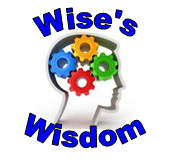What Makes You Itch? What would You Do if Money were No Object?
My selection this week is a short video that is sure to make you think! As I watched it, I couldn’t help but think of how much it reinforces the importance of the “experience” we create for students every day. The video’s messages illustrates the power in having choice, sparking an interest, and finding a passion. It’s also a great reminder for us of just how important those college & career readiness skills and real life, authentic experiences are to all of our students! Most importantly, it drives the question: How are we preparing students for their futures?
7 Essential Principles of Innovative Learning
As we are well underway with HS course registration, and soon to begin both MS and 6th Grade course registration, it's amazing to see the types of new opportunities and experiences our students have been afforded. My selection this week hits at the very core to the importance of how we create these experiences in our classrooms. I think you'll find some major connections to these 7 Essential Principles and our 7 Characteristics of Highly Effective Leaders; Teachers; and Students. Enjoy and have a great week!
Why Leadership Requires Prudence and Temperance
Leadership is a complex role that requires more than perfecting one isolated virtue. The author knows that great leadership is "...the ability to deal with overlaps, to integrate, to identify synergies and interdependencies and support our people in maximizing those opportunities to create profit (output) and purpose (outcome)."
Why Leadership Requires Prudence and Temperance
Why Educators Should Spend 15 Minutes a Day on Social Media
Solving the Problems of Dumb Leaders
Where does it say leaders can't be wrong? Likewise, where does it say that leaders shouldn't admit when they are wrong? I know the reaction is that it comes across as a sign of weakness right? Leaders always tell their followers, it's ok to fail because you're going to learn from it. The only problem with that statement is we remove the human decision and "assume" they will learn from it. In order to learn from a mistake, you must first accept the fact that you made a mistake. Can a leader admit to making mistake, learn from it, and still continue to lead? I believe yes, but what do my beliefs matter for your leadership style? The important question is do you believe it?
Do you believe leadership comes from a title?
Are leaders expected to be perfect?
Are you willing to be a learning leader? See the article for a description of what a Learning Leader truly is. Have a great week.






No comments:
Post a Comment